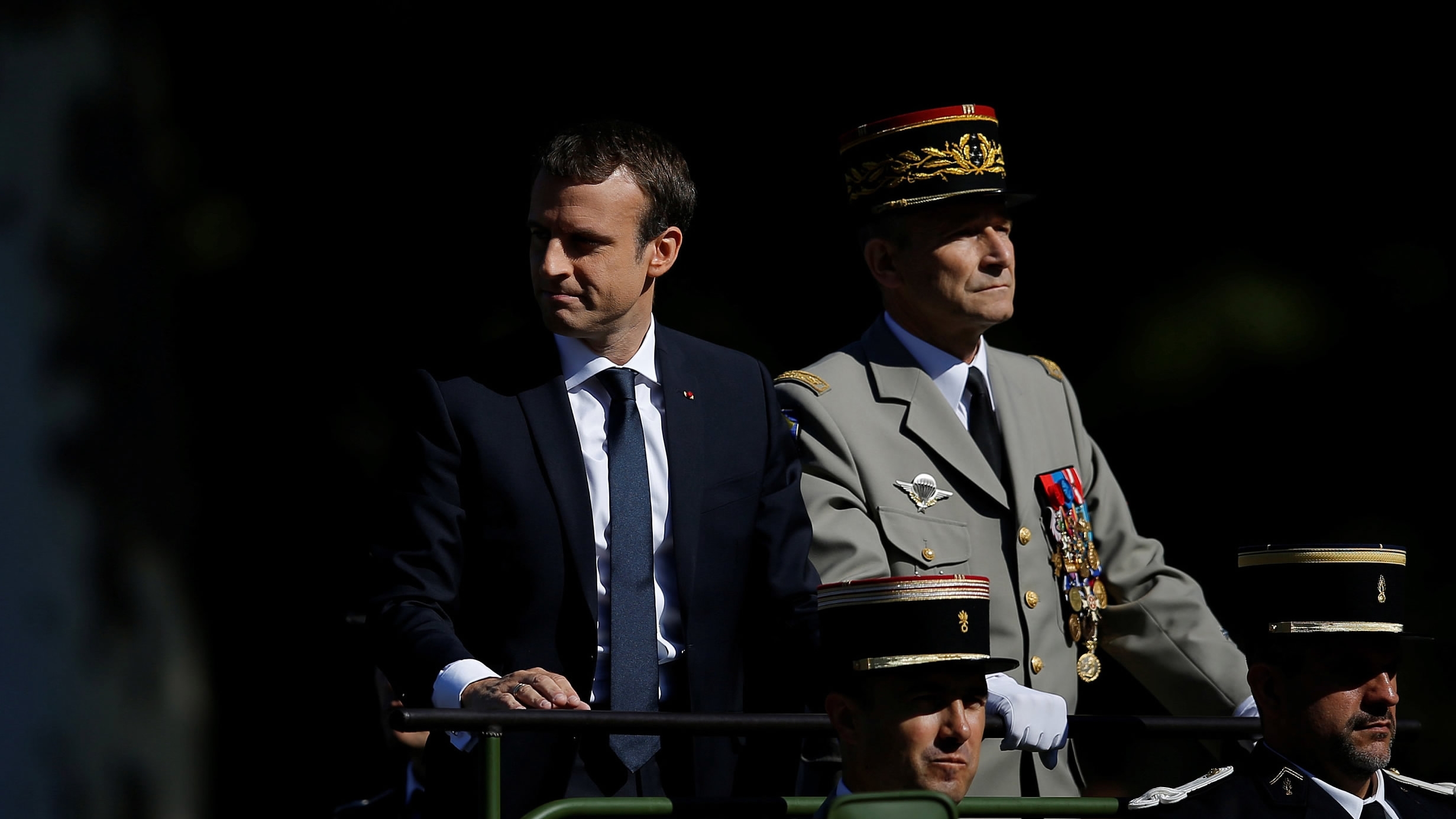French President Emmanuel Macron rode to power in May on the back of vibrant, progressive movement, but just two months after taking office his popularity has taken a 10-point hit.
An Ifop poll published in the Journal du Dimanche newspaper on Sunday found that 54 percent were satisfied with the 39-year-old’s performance in July, down from 64 percent in June.
Popularity
The presidential election and subsequent parliamentary success for Macron’s La Republique en marche party were triumphs that shook the established norms of French politics – but the country’s election system means the results shouldn't necessarily be interpreted as a rubber stamp for his agenda.

French President Emmanuel Macron waves from his car on the Champs Elysees after the handover ceremony in Paris on May 14, 2017. /VCG Photo
Macron won the presidency in the second round of voting on May 7, taking 66.1 percent of the vote in a run-off against far-right contender Marine Le Pen. The victory was comprehensive, but the headline numbers masked the strength of anti-Le Pen sentiment and voting.
Macron also led the way in the first round with 24 percent but the top four candidates were within a 4.5-point spread, and initial favorite Francois Fillon was plagued by scandal.
Faced with the realities of his plans to reform France – a plan involving 60 billion euros in savings over his five-year term – the latest polling indicates the soft support Macron enjoyed at the election has weakened.
Policies
The Macron campaign promised to “work for everyone” while being “neither left nor right,” appealing slogans that perhaps didn’t reveal the extent of rebalancing and deregulating that would be undertaken.
Macron promised 60 billion euros in spending cuts over five years, with 50 billion euros in investment over the same period.
The impact of the rebalancing was brought to global attention last week when General Pierre de Villiers dramatically resigned as head of the armed forces after clashing with Macron over an 850 million euro cut to the military budget.

French President Emmanuel Macron and then Chief of the Defence Staff French Army General Pierre de Villiers arrive at the Bastille Day military parade on the Champs-Elysees in Paris, on July 14, 2017. /VCG Photo
De Villiers said he no longer felt able to command the sort of armed forces “that I think is necessary to guarantee the protection of France and the French people,” remarks which helped propel the issue into a major row.
AFP has also noted concerns over a reduction of five euros per month in housing benefit and unspecified cuts to the women’s rights budget, while Macron overruled his own prime minister to push for tax cuts in 2018.
He also warned lawmakers in early July that he would put his planned institutional reforms – including reducing the size of parliament and making changes to the voting system – to a referendum if they were not passed quickly.
Style
Macron has received praise for the manner in which he approached high-profile meetings with Vladimir Putin and Donald Trump, particularly the extended power play handshake with the US president that he later explained was “not innocent.”

US President Donald Trump shakes hands with French President Emmanuel Macron at a NATO Summit in Brussels on May 25, 2017. /VCG Photo
But eyebrows have been raised over other aspects of Macron’s style, with opponents such as Jean-Luc Melenchon depicting him as a “new presidential monarch.” An insider telling Le Monde that the new president’s “complex thought process” prevented him from taking part in a traditional Bastille Day press conference drew amusement online and sharp reviews from journalists.
With extensive cuts to come as Macron seeks to rebalance spending and unions mobilizing in opposition, the July poll slump may well mark the end of the honeymoon and the beginning of a prolonged testing period for France’s new president.









